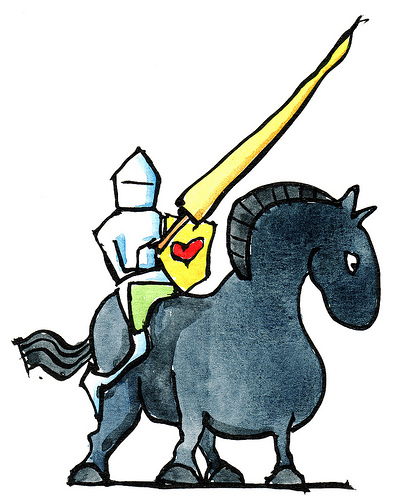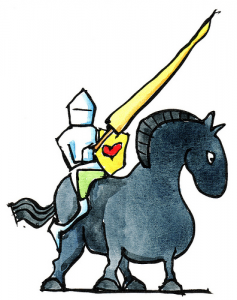
SOPA and Writers
The debate around the SOPA and PIPA acts has generated a lot of noise during the last weeks. The blackout movement spearheaded by Wikipedia to protest against SOPA, the attacks by Anonymous hackers against federal institutions and various recording and movie companies are great material to write article, so journalists and bloggers alike relished the occasion.
This must be why a verbatim search for “SOPA Censorship” yields over 152 million results. The whole protest movement is hitching a ride on the gut reaction generated by the word “censorship”. No-one wants to be censored, and no-one should.
Yet, is SOPA about censorship? SOPA stands for Stop Online Piracy Act. Pirates, whether in Somalia or on the web, are a special subspecies of thieves, as they operate either at sea or on the web, but never on land. Unlike the Somali sea pirates who personally steal physical goods and demand ransom, the online pirates operate from behind a virtual screen and steal intellectual property.
As writers, our bread and butter are based on intellectual property. So rather than jumping on the wagon and accuse SOPA of being a big bad censor, we should take the time to look at the terms of the proposition, or at least at its summary.
According to Webster, to censor is:
to examine in order to suppress or delete anything considered objectionable <censor the news>; also : to suppress or delete as objectionable <censor out indecent passages>
Examples of CENSOR
- The station censored her speech before broadcasting it.
- His report was heavily censored.
So to censor is linked with cutting out or suppressing content based on subjective reasons.
SOPA’s aim is not to censor content; it is to prevent theft of intellectual property. So accusing it of censorship is counter-productive.
Whether SOPA’s intended ways of upholding the law are to be applauded is another question.
The basis of democracy in the legal system is “Innocent until proven guilty”. By putting forward a proposal that would enable blocking access to entire internet domains due to infringing material posted on a single blog or webpage. Is SOPA advocating punishing these moral entities first, without as much as a warning, and let them attack the punishment after?
If yes, this seems to go against the proper rule of law and warrants serious objections. However, claiming that it is censorship is inaccurate and misleading. Granting such extensive powers to anyone is opening the door to wide reaching abuse of power is cause for grave concern and should be attacked.
Yet, it is imperative to put in place a system that protects intellectual property. So let’s object to SOPA for valid reasons and keep the focus on the necessity to create a viable copyright protection framework.
